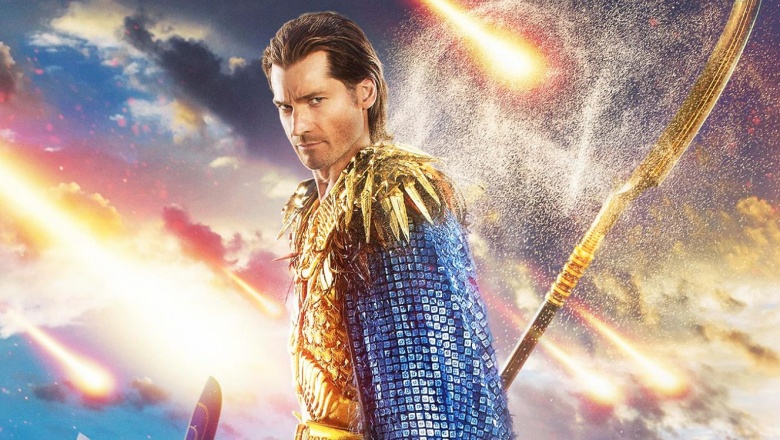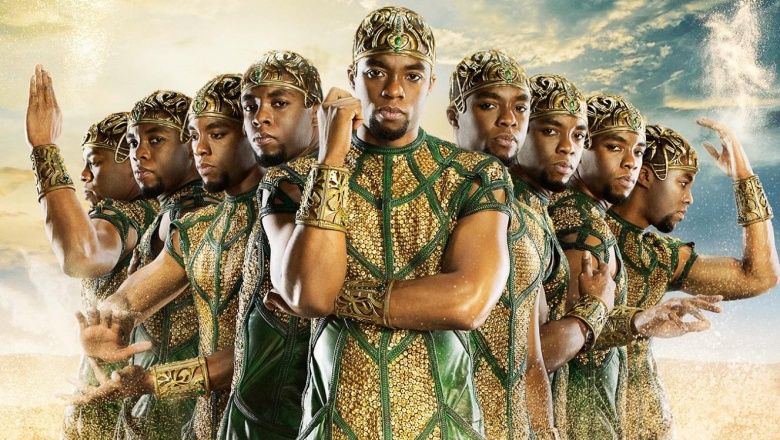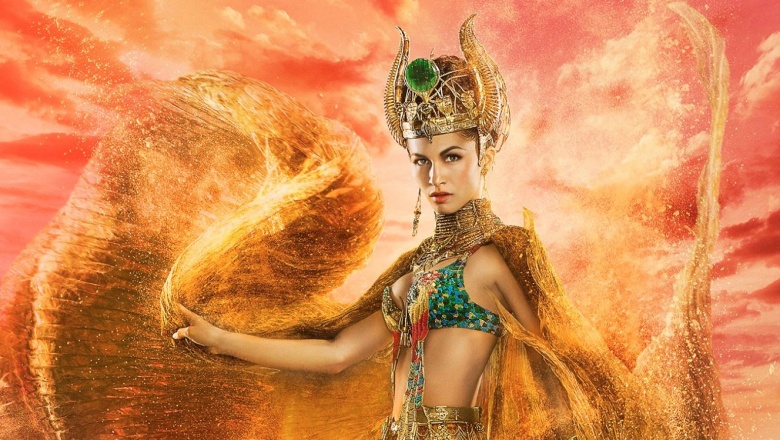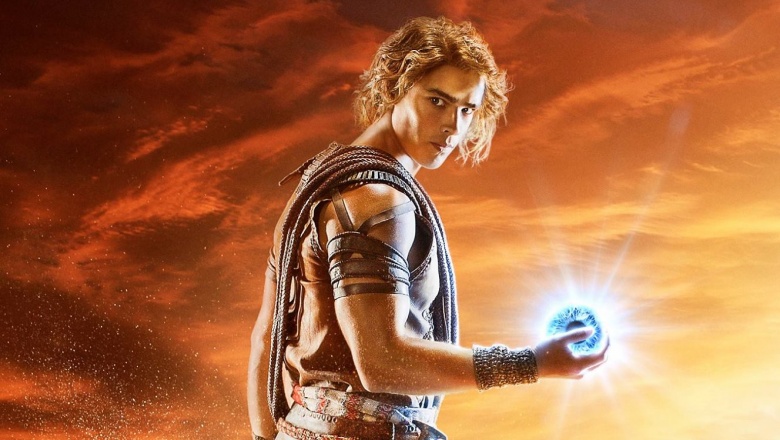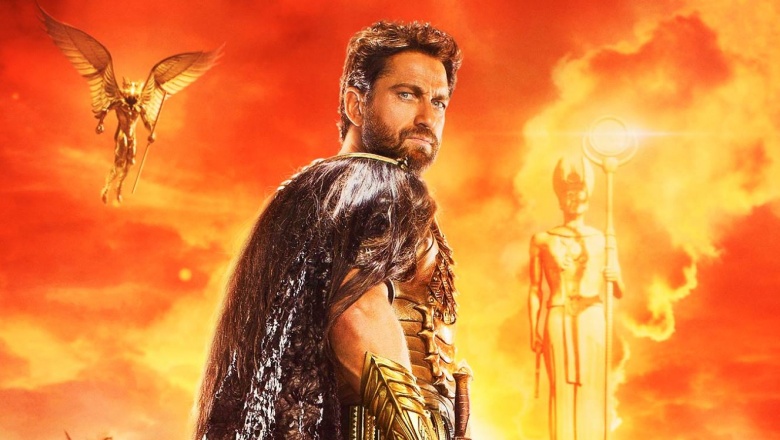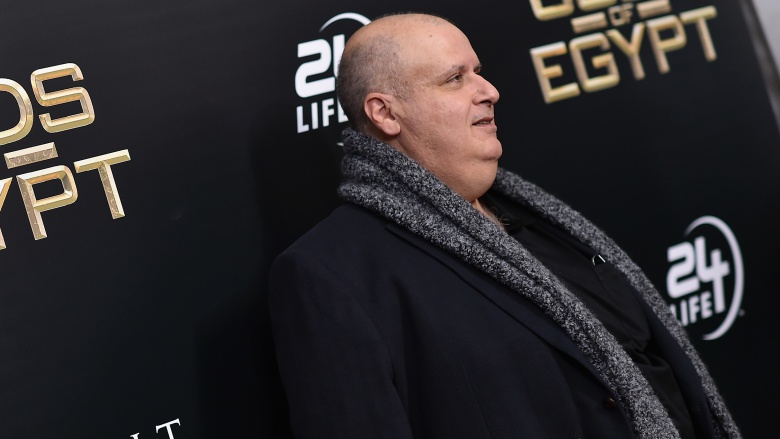Why Gods Of Egypt Is A Disaster Of Mythic Proportions
A few weeks after Deadpool became the sleeper hit of 2016, another movie hit the multiplexes and made headlines of its own: Gods of Egypt, which cost over $140 million to make, and only earned $14 million during its opening weekend, becoming the first theatrical bomb of the year. So how did a movie that was supposed to be a new tentpole franchise only manage to earn ten percent of its budget? Here's why Gods of Egypt couldn't escape the underworld of utterly crappy movies. Spoilers to follow...but can you really spoil something that's already rotten?
Whitewashing
Right off the bat, when word of Gods of Egypt's cast and premise started getting publicity, the filmmakers were rightly called out for their decisions—namely, the fact that they cast the roles of Middle Eastern characters and mythological figures with a bunch of white people. Game of Thrones' Nikolaj Coster-Waldau played Horus, Gerard Butler chewed the scenery of the villainous Set, and the grandpappy of the gods, Ra, was played by Geoffrey Rush. At the very least, the movie's director and co-writer Alex Proyas owned up to the mistake, telling Forbes in late 2015, "The process of casting a movie has many complicated variables, but it is clear that our casting choices should have been more diverse. I sincerely apologize to those who are offended by the decisions we made." Even worse: the actors they did cast weren't even very good.
It's a charisma vacuum
As Horus, Coster-Waldau shares most of his screentime with a mortal named Bek, played by Brenton Thwaites. The two banter back and forth as they learn about life and love, and they're both pretty much bland, boring, and terrible. At no point do these characters seem to like each other, and at no point does the audience like them either. Meanwhile, none of the other gods manages to muster anything resembling a personality. Bad guy Set yells sometimes, and he's mad at his dad. French actress Elodie Yung as love goddess Hathor has feelings about things, which we know because she tells us repeatedly that she's the goddess of love. Wisdom god Thoth, played by Chadwick Boseman, comes the closest to actually being a character, but that's mainly because "arrogance" isn't hard to portray when you're surrounded by a bunch of actors thinking about the boats they'll buy with their Gods of Egypt money. But here's the real reason no one managed to act in a way that was remotely interesting...
Visual effects gone mad
Here are a few things you probably didn't know about the Egyptian gods: they're, like, ten feet tall, bleed golden blood, and can turn into cheap-looking CGI animal robots, like Transformers, but somehow actually worse. While that may sound interesting in theory, in practice that's all a major pain in the butt to shoot. It'd be one thing if all the actors playing gods were actually ten feet tall, but since they're not, they had to shoot their scenes in front of green screens, with backgrounds and other, normal-sized characters being filled in during post-production. The result of a movie loaded with so many insane, over-the-top visual effects is that the actors can't actually, y'know, act. Acting is usually at its best when performers can react to each other and their environments. When they can't, the result is usually pretty piss poor. For proof, look no further than the Star Wars prequels or The Hobbit movies, to name only a few examples. Worse, at a certain point the human brain simply can't process so much unrealistic imagery, so every effect looks fake as hell. When used sparingly, visual effects can make the fantastic seem possible. When used constantly, however, they make everything just look ridiculous.
Squandered a unique premise
It doesn't help that the story of Gods of Egypt is pretty much nonsense from start to finish. In the world of this movie, Egypt isn't so much a single nation on the planet Earth, but rather the sum total of the Earth itself. And the Egyptian Gods aren't just deities; they rule mortals from actual physical palaces. All of that is actually kind of intriguing on paper: a fantasy world that's influenced by Middle Eastern mythology rather than European, so it should've been an interesting change of pace in terms of the fantasy genre. But the movie doesn't actually do anything with that premise. Our characters are motivated to bring Egypt back to where it was before Set takes over, but we never really see just what life there is like in the first place. The main difference is that Set uses some (but not all?) mortals as slaves, while Horus and his dad Osiris don't. And the movie spends so much time explaining what's going on from scene to scene that it forgot to actually tell anything resembling a story.
Making and breaking its own rules
All of that would be bad enough on its own, but Gods of Egypt can't even get its own stupid rules straight. Early in the movie, we learn that after Set removes Horus's magic eyeballs (yup), he can no longer into a robot-bird until he gets both back. But by the movie's climax, Horus transforms anyway, even though he's only got one of his super-eyes. Moments later, Horus flies into space (uh-huh) to see find his grandfather, Ra, who was seemingly killed by Set a few scenes earlier. But apparently he wasn't actually dead, just sleeping. So Horus wakes him up and the day is saved. Good job, maybe?
The director seems delusional
Above all, the real reason Gods of Egypt is such a flaming pile of garbage is because Alex Proyas, who directed and cowrote the screenplay, clearly can't take criticism. The evidence comes in a Facebook rant that Proyas posted on the final day of the movie's opening weekend. In it, he calls critics "deranged idiots," and continues to explain that the reason his film earned such bad reviews isn't because it's an unwatchable mess that makes no sense. It's because the critics are out to get him: "They fail to understand, or chose to pretend to not understand what this movie is, so as to serve some bizarre consensus of opinion which has nothing to do with the movie at all...Seems most critics spend their time trying to work out what most people will want to hear."
The truth is much simpler than a critic-wide conspiracy, however. Proyas, who once showed promise as a storyteller with The Crow and Dark City, can't understand that some of his ideas might not be all that great. He's apparently the kind of person who can't hear "no, don't do that." As a result, it seems that every one of his concepts, no matter how insane or inane, made it onto the screen for all to see. The result is an utter failure on every level, obvious to anyone with a working brain. Again, for proof of this theory in action, check George Lucas's much-maligned Star Wars prequels to see what happens when a filmmaker can't figure out how to take criticism.

